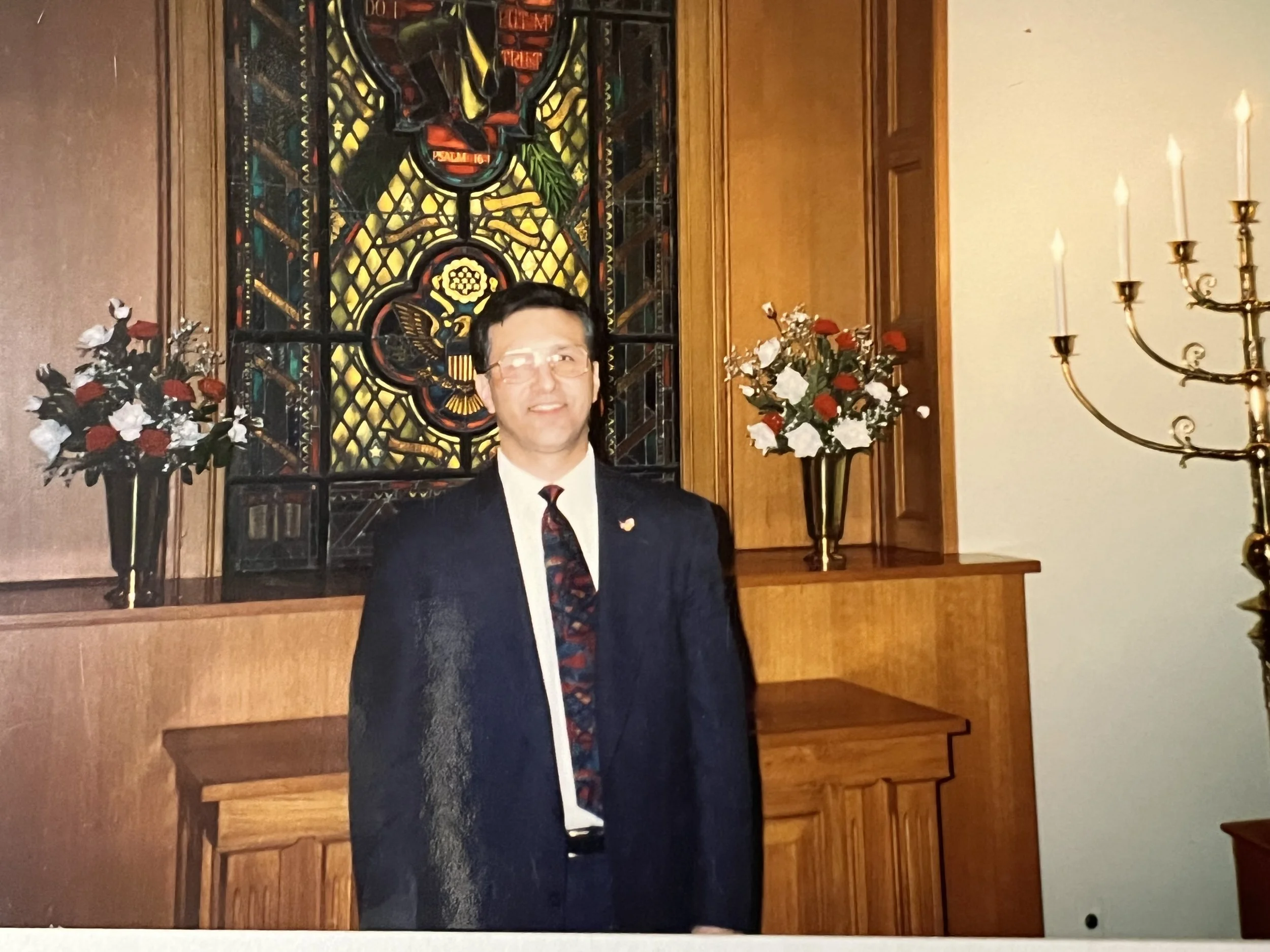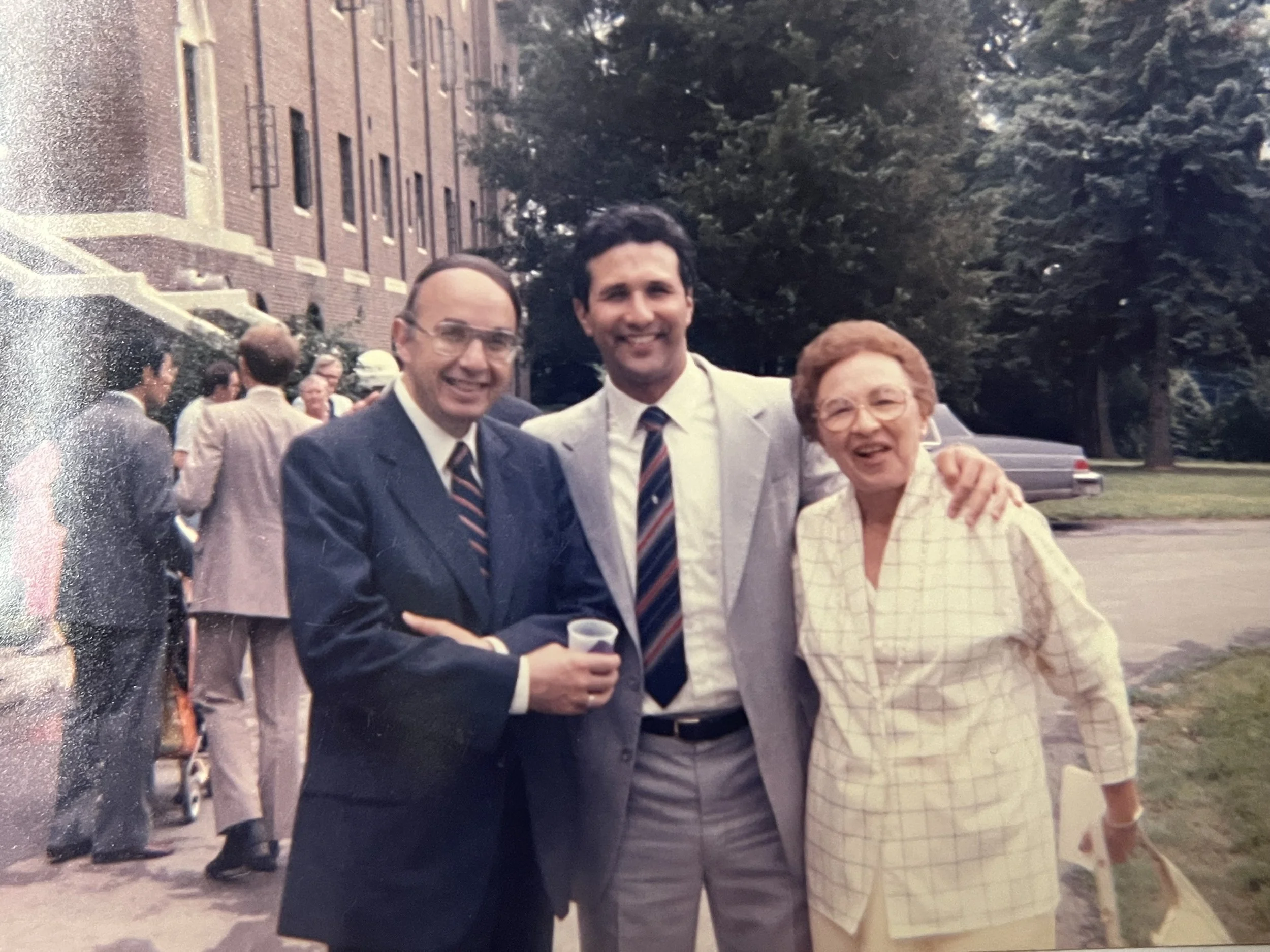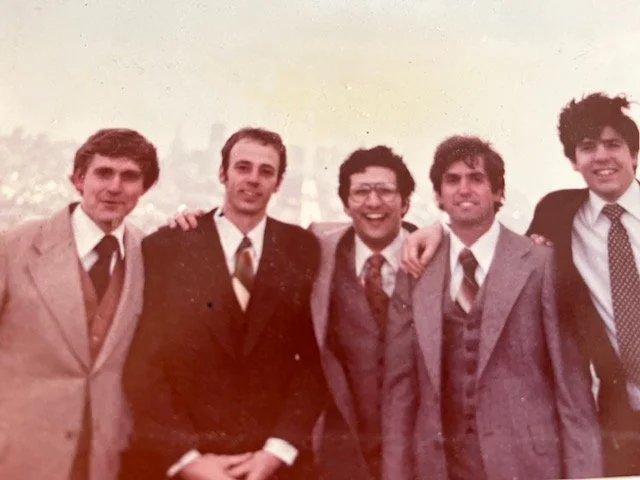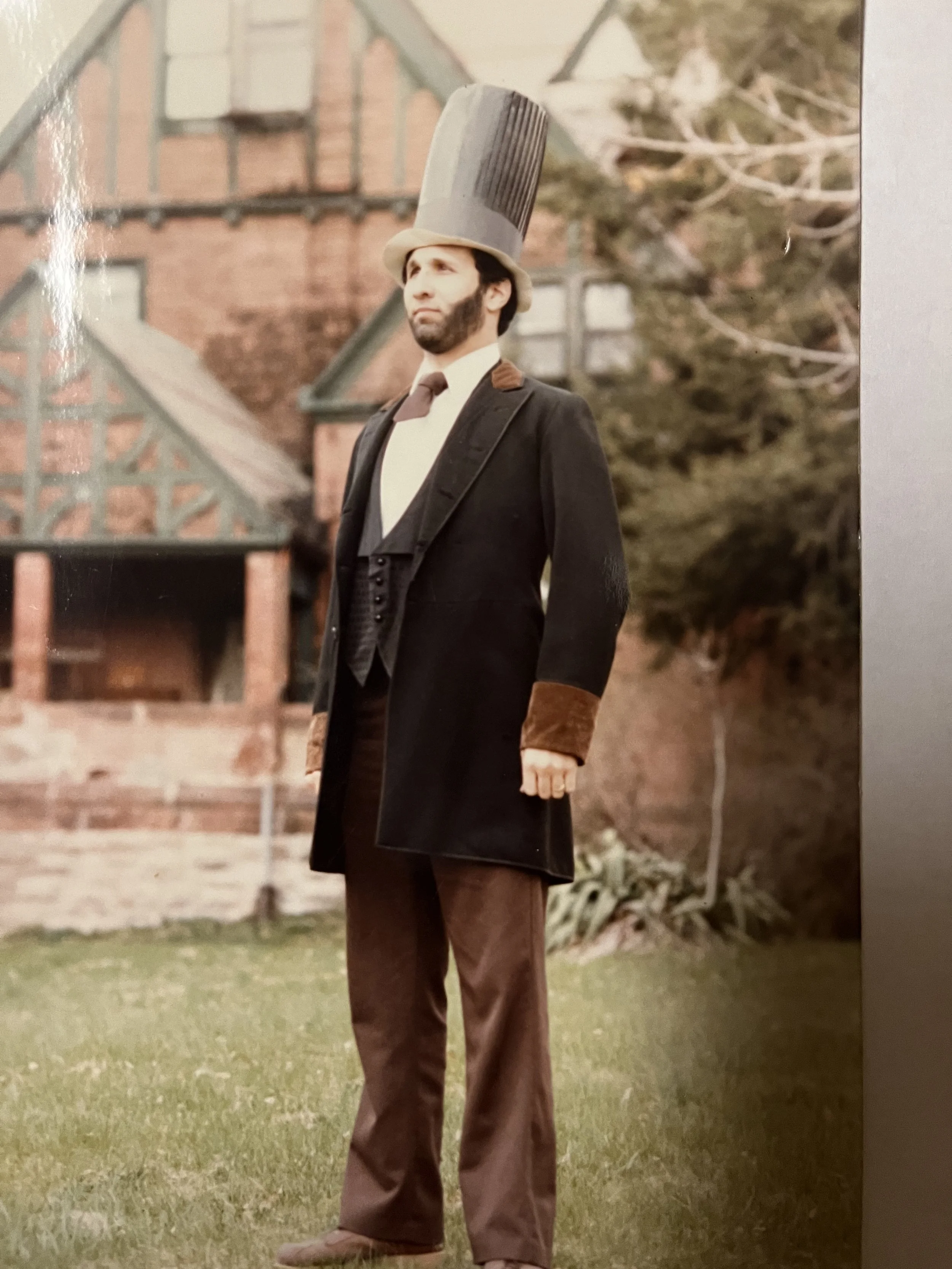Why Write a Doctoral Dissertation
photo by Bruce Sutchar
by Bruce Sutchar
On my very first day of kindergarten, I cried and cried and cried. You see, I had a very happy first five years of life. I lived with my parents and my mom’s parents and, as the firstborn male in our Jewish family, I felt as if I was treated like royalty. I even had my own room and my mother always said that I should have been born a prince—but I was!
My first experience (it was called nursery school) saw me and a sidekick deciding to “blow this place” by running out the bar room swinging doors and hiding underneath his backyard steps until our frantic teacher found us frolicking around the neighborhood Then, just as I got used to kindergarten (which I knew would be an infringement on my lifestyle) our family had to move, owing to the birth of my younger brother. So, I was forced to start kindergarten all over again, not knowing any of my new neighbors and having to abandon my newest best friend (the only kid crying more on the first day of school than I was).
Owing to the fact that I would rather be out playing ball instead of studying, I was little more than a C+ student. In fact, on my very first day of school, I saw a cute little girl playing in her backyard and I joined her for the remainder of the day rather than proceeding on to school (in those days life was so safe that the principal did not call your mother to tell her you had never shown up). In fact, before I was five, I used to walk about two blocks all by myself to my aunt and uncle’s house for dinner every Thursday night (and there never was an incident).
I proceeded through the next eight years of elementary school with but few minor incidents. In 1956, I was bullied by the school tough guy who said I owed him 10 cents from a world series bet (it was actually only five cents and I had called the bet off because my father told me to never bet with a bully). However, my dad showed up at recess one day and that ended that. Then again, one day a gang of ruffians on bicycles mugged me and stole my Halloween bag of goodies. Springing into action, my hero Father once again threw me into the car and we hunted them down in no time. He threatened the bullies with telling their parents and thus a few hours later they showed up with a Halloween bag filled to the brim with even a few more pennies than my own bag had held (pennies were more special than candy in those days).
Sociologists agree that for almost all teenagers high school is a bad to horrible experience. Even for the jocks and class leaders that you would have thought loved it. Shortly before high school two of my closest friends were double-promoted, so by the time I got to high school, I had but one close friend. Of course, I made a new group of friends, some of whom I still talk to everyday 64 years later.
I did well my first two years of high school entering the top 5% of my 500-student class. But an unhappy confrontation with my high school baseball coach led to my losing motivation for the final two years and of course, as a teenage boy, I could not talk to my father during this time, so I just suffered through it horribly.
By graduation I had been accepted to the only two schools I had applied to and I went off to college on one wing and a prayer. Somehow I made it through my first three years of college but then, it being in the middle of the Vietnam War, I decided I needed a sabbatical to take time to figure out what it was in life that I really wanted.
So in 1968, I participated in the Democratic National Convention protests in Chicago, and then took off for the West Coast. After returning home to Chicago, I took a couple of part-time jobs and then decided to return to Indiana University and finish my last year of college.
Now please remember, this is the kid who cried and cried on his first day of school. But after graduation I wound up teaching middle school in one of the poorest neighborhoods in Chicago. But I actually loved it and worked endless hours so that I could do it right. I took my students to see Baseball games, Hockey matches, Michael Jordan basketball games and even to see Muhammad Ali as he trained to fight Joe Frazier for his World Heavyweight Boxing Championship.
But after two years I knew that God had something else for me to do. That’s when I met the Unification movement in San Francisco. I did my MFT by working as a Matre’d in our Jewish Delicatessen and bagel shop. Then came the blessing and, immediately afterward, I was invited to attend UTS. I had no desire to go back to school, but I did want to attend David Hose’s 40-day workshop. So, even with little motivation for any more schooling, I said OK. Then I became the fundraising captain for a 12-member team of people with no green cards. As school started, I became the class vice-president after only wanting to sit quietly in the back of the lectures and volunteer for absolutely nothing. Then, before school even began, I broke my foot playing soccer and spent most of my first year at UTS walking on Father’s trail with my crutches.
As a result I decided to stay for a third year since I loved the Hudson River Valley so deeply. My motivation here was to attend the World Religious Pilgrimage as a third-year student but, unfortunately, I was not elected to attend.
Oh yes, I forgot to mention that back in California I had applied to law school. (I had always wanted to be the next Perry Mason.) Although I did well on the LSAT, I did not have the resources to pay for three years of law school. So I returned to Indiana to get a Master’s Degree in Counseling, after which I planned to go and counsel students in the inner-city. But, low and behold, I did so well that I was encouraged to go on and get my doctorate. However, after three years of college teaching, I decided that this was not really what I wanted and I left school just short of writing my doctorate.
So picture this: a young boy cries and cries on his first day of school. He has already ditched nursery school, failed to make it to school on his first day of kindergarten, dropped out of college, walked out on his doctorate minutes before completion, turned down a second opportunity to finish his doctorate, did not want to attend religious seminary and then, sixty-seven years later, was still thinking about writing a doctoral dissertation.
So, after 24 years of schooling from ages 4-38, I was finally finished. Honestly, I had always wanted to finish my doctorate and, as I was graduating from UTS, Father sent me a message through Col. Han, saying that after working in the field he would support my efforts to finish my doctorate in Psychology. In fact, I would be the only member with a Ph.D. in Psychology (rather than in religion like the others).
When COVID hit, UTS changed its rules so that prospective students would not have to travel to New York for intensive classes. That meant that I could complete a doctorate in three years by having zoom calls for three hours three times a week. A couple of my elders encouraged me to do this, but it was not until elders like Dr. Thomas Ward and Dr. Michael Jenkins (who had just finished his doctorate) talked to me that I began to consider it. Dr. Ward emphasized how God could use me if I had a doctorate, even more than He was currently using me. Franco Famularo also, without pushing, encouraged me to follow my heart and if it was the right thing, between me and God, I should go ahead.
Now I’m over 70 years old. Often when walking on a college campus and looking at the young overly Asian students, I seriously doubted whether I could even gain an undergraduate degree if I had to start from scratch.
So, what should I write about? I was no longer a pastor of any church, but I had much rich experience in life. Initially I felt that if the second-generation millennials (the children of those who had joined our movement in the 1970s and were not currently involved in our local churches, just as my own children reacted) never came back to church, then all of Father’s teachings and ideas could possibly vanish as so many other denominations had gone “out of business” throughout the centuries. Many of these millennials had gone on STF, GOP in Korea and had attended many of Father’s and Mother’s speeches. However, they became disenchanted with the church structure (a church being something that Father always claimed that the HSA/UWC was not supposed to be).
I began by interviewing 150 second-generation children who had finished high school (the time when children from every church will usually leave their home church). The majority of these second-generation members were not blessed. I asked them questions about what they felt was missing from our church and allowed them to express their hopes for remaining active as well. I asked six dedicated church members (three first- generation and three second-generation) to be my advisors and consultants.
I also visited one of the largest Christian Churches in Chicagoland. The youth pastor there held a monthly young adult bible study and many youth came from other churches as well. My experience there on a cold December night was profound. She gave a short mini-sermon and then broke everyone up into four groups. They were to answer the question what it meant to love God with all your heart, all your soul and all your mind. What struck me was that this gave each of the youth a chance to respond, both in their own small group and to the entire congregation. One thing I remember is meeting one student who had come from a different church. It was Thursday night and it was below freezing, but he, made the trek because he was hungry for quality teaching. I only remember this kind of give and take happening one time in all my years in the Chicago Family Church. (In fact, this was an idea suggested by former UC President Jim Baughman.)
I did a tremendous amount of research and picked the minds of my UC professors. In a nutshell, I am grateful to Bill Selig (in my first class). I am especially grateful to Dr. Noda (great sense of humor), Franco Famularo a constant friend, Dr. Michael Mickler (always a great challenge) and especially to my advisor Rev. Dr. Luone Rouse. One thing I didn’t understand was that the oral exam was not pass/fail – it was pass; fail slightly; or fail greatly. Since I didn’t follow the standard format for writing my dissertation, I failed miserably. I thought it would take me six more months to graduate, but Dr. Rouse outlined for me exactly what I needed to do in order to graduate on time.
All photos by Bruce Sutchar




